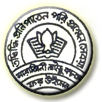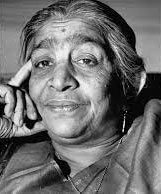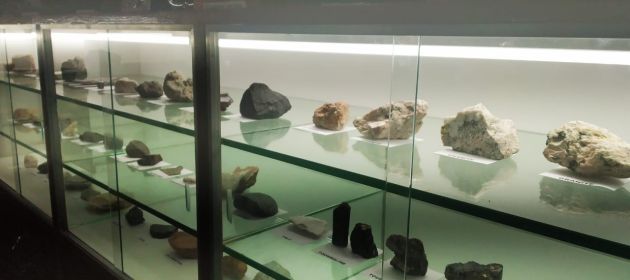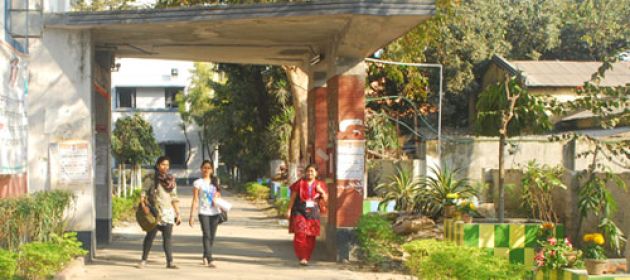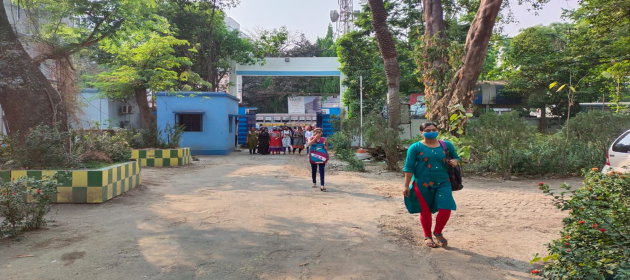During post-independence era, questions for economic security, fulfillment of basic needs, safety, social justice and harmony became more prominent before the entire nation though the contexts varied. Few years later it was also realized that development does not merely imply economic growth or a simple increase in per capita income. Human empowerment was felt necessary, which was more than mere economic growth. Partition of India further revealed that women and girl children were brutally subjected to domestic violence. Development for them implied the inclusion of their efforts, experiences, dreams and hopes. It meant a concern for these marginalized sectors by giving focus on their training, awareness-raising, social organization, capacity-building and institutional development. The factors identified as essential for women’s’ development were information dissemination, awareness generation and self-development. This would lead to empowerment through capacity-building.
With a vision and mission to expand personal capability of the women, government took several steps, one of which was to expand the scope of women’s education. It was thought to be the chief mechanism which would increase their ability to exercise choices free of hunger, want and deprivation and would increase opportunity to participatory and self-sustainable society, the government took moves towards institutionalizing education from primary to territory level. Further partition of India compelled the government to think more about the uprooted women. This was the mission which laid foundation stone of Sarojini Naidu College for Women.
Sarojini Naidu was an iron lady with her own identity as a freedom fighter, poet, administrator and above all an honored person with strong personality, dignity and determination. She had her own vision of life and her contribution in nation building is worth remembering for all times. The College was named after this lady so as to set an ideal for the students, teachers and staff and for all other associated with the college in one way or the other. To perpetuate the memory of Sarojini Naidu and to that end to go in for tireless effort for the advancement of learning and culture, the College lighted its first candle in the year 1956. The College started its journey as government sponsored college to provide greater opportunities of education for women at higher secondary and undergraduate level. Smt. Latika Ghosh (niece of Sri Arabinda Ghosh), Smt Bina Sengupta, Smt. Sadhana Bhattacharya, Dr. Juthika Sengupta, Dr. Ponty Roy ornamented the chair of the Principal and worked hard for the development of the college. Dynamism of Dr. Urmila Ukil, the present Principal, has created the hope that the College will touch the Olympian height. The College received its affiliation from the University of Calcutta, in the year 1957 under UGC ACT 2f & 12B.
Initially, the College started with very few subjects and handful of students. In course of time, it went in for extension of higher education is a variety of streams of Humanities, Social Science, Bio Science and Pure Science. The department of Higher Education, government of West Bengal and Calcutta University allowed the college to introduce subjects both for general and honors students. Honours Courses were taught in subjects like Bengali, English, Political Science, History, Philosophy, Sanskrit, Mathematics from the very beginning. Later on in 1995 Physics, Chemistry, in 1998 Botany, Zoology, received the sanction as Honours faculties. Recently, Honours courses in more and more subjects have been introduced in the College.
The College is always eager to expand the scope of education to the very deprived section of the population. The students it has under its umbrella come mostly from the lower middle class or middle class background and many of them are first generation learners. They can neither pay heavy amount of fees, nor can purchase good text or reference books for their studies. The College helps some of them by providing aid from its fund and teachers also personally supply text and reference books to the needy students. There is also a good library and teachers stay on long beyond their scheduled time table for assisting students in all sorts of ways, but lack of proper environmental ambiance in the homes of the girl students often make it very difficult for them to continue their study or at least to allow adequate time for study at home. What is a matter of grave concern is the fact that often the students come to college after doing house hold chores. They really lose their energy for concentrating on their studies in the classes.
The College authority is proud to state that it has a large number of qualified, skilled and dedicated teachers who are absolutely devoted and for whom teaching is a passion more than mere profession. It is also proud to state that the integrity and the sense of love and respect between the senior members and the new comers make the academic environment healthy. The principal, the governing body, the teachers and the members of the non-teaching staff are all like the members of the same family with a pious mission to spread the light of knowledge to the students who are the children of this College. All of them feel that they are responsible for nurturing the students with utmost care and education. Students and staff share their joys and sorrows together.
| Smt. Bani Sarkar | 1956-1957 |
| Smt. Latika Ghosh | 1957-1964 |
| Smt. Bina Sengupta | 1964-1977 |
| Smt. Laxmi Sanyal | 1977-1979 |
| Smt. Sadhana Bhattacharya | 1979-1986 |
| Smt. Krishna Kayal | 1986 |
| Dr. Juthika Sengupta | 1986-2000 |
| Dr. Ponty Roy Mitra | 2000-2009 |
| Dr. Sunanda Chatterjee | 2009-2012 |
| Dr. Urmila Ukil | 2012- |
 Pay Your Fees
Pay Your Fees 